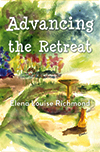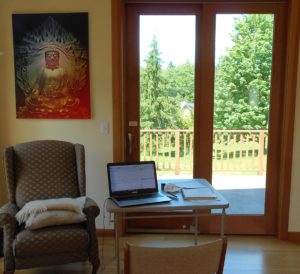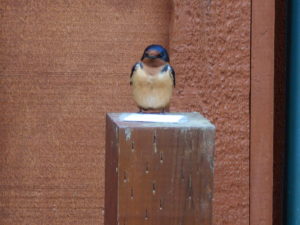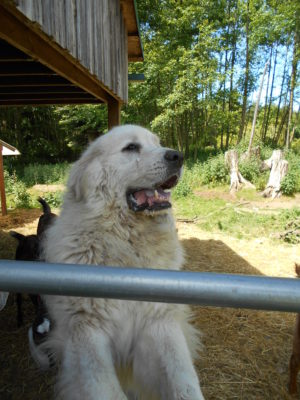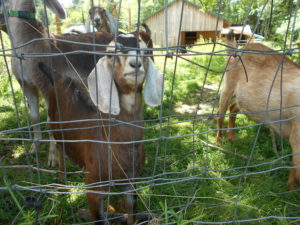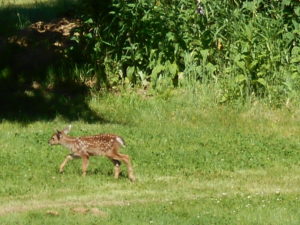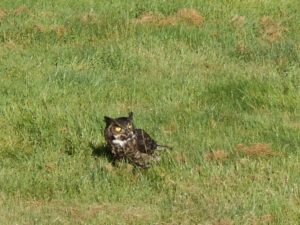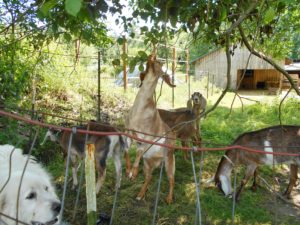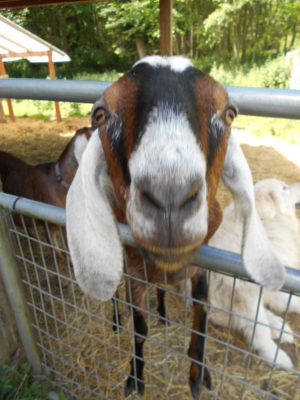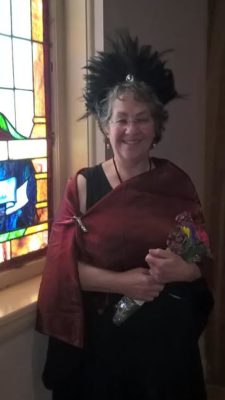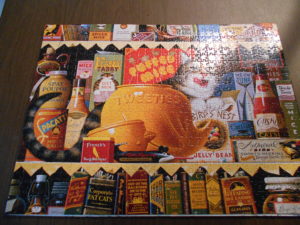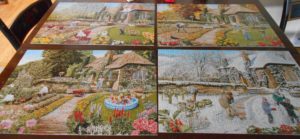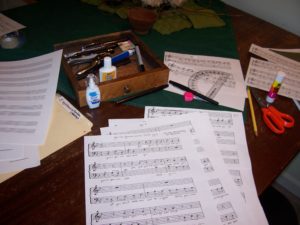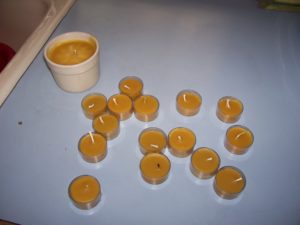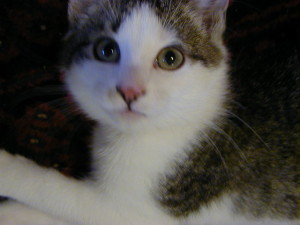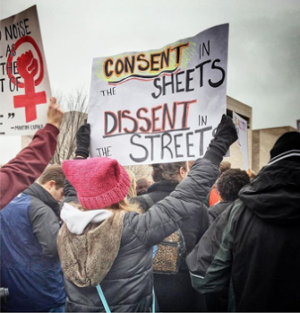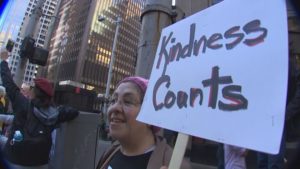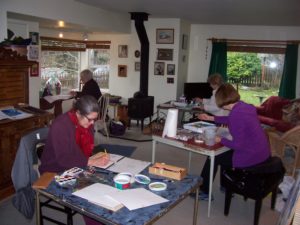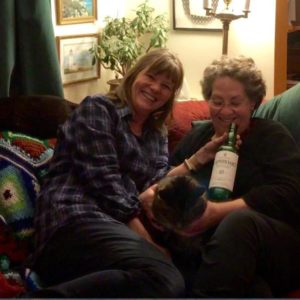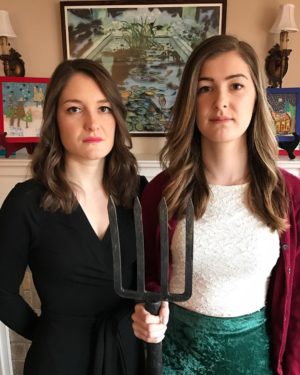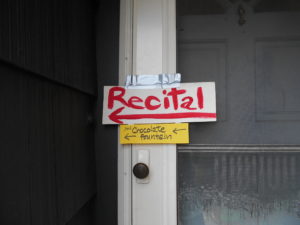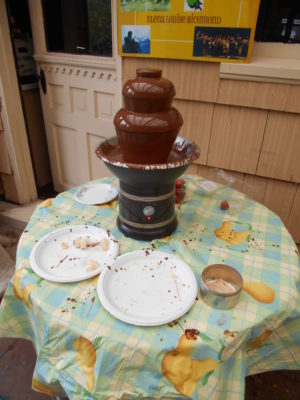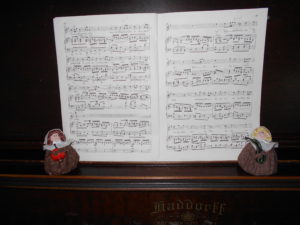Memorializing Whidbey
It’s been another contemplative ten days on Whidbey Island. I guess I have become one of those hothouse artiste types: “Oh, I can only write on my island.” Except I’m home now and I’m writing this. I need to memorialize the week.
Memorialize. That’s a word we all know now—those of us that follow the drama in Washington D.C. One feature of my time on the island is that I did not hear any news until 5:00 each afternoon, at which time I went down the hill to Tommie’s house to watch Chris Hayes. With the exception of Thursday, the day of the much bally-hooed James Comey testimony before the Senate intelligence committee. I didn’t want to waste my morning with soap operas, which everyone knows are for the afternoon anyway so on Thursday I started in on all the commentary and clips at 3:00.
My days on Whidbey began at 5:30ish. I’d get up, check for visible deer, make tea and read for an hour. Then I worked on my novel until noon. I always write in the meditation hall above the apartment where I stay in the Buddha House. I am surrounded by meditation cushions and Buddhist art. There is an atmosphere there that invites focus. I am thrilled to be 75% of the way through the first draft with the remaining chapters more or less outlined. It’s quite an accomplishment, given that I first tried to start this book in 1997.
There were other accomplishments: I finished a bottle of Scotch, I read three books and listened to two on tape. I painted, I took two voice lessons and I walked in the woods every day. I wore the same clothes over and over; when I got back to Seattle, I transferred them with thumb and forefinger directly from bag to washing machine without actually looking at them. I didn’t wear any jewelry or make-up, which meant that I didn’t have eyebrows for ten days.
The animals didn’t care. I love the birds and animals up there. There were rabbits everywhere, more than I’ve seen in years. There was a bird couple setting up housekeeping in the porch of the Buddha House directly above the front door. They had positive fits every time I opened the door at an inconvenient time for them.
On my second day there, I put my lawn chair (I always take a lawn chair, this being a retreat center, not a resort) under the porch roof so I could read quietly and hope deer would stroll by. The two birds flew back and forth under the roof, chirping indignantly. Finally the female settled into her nest above my head and the male sat on a post a foot away and scolded. He chirped to the wide world to look at this outrageous creature sitting here in her lawn chair. Then he turned toward me and tried to shame me. Day after day this happened until finally the scolding was something to do but he had forgotten why he was doing it.
I met the farmer who owns the goats across the road. I stood with him at the gate to the goat pen, while Mishka, the big, drooling white dog who herds the goats within an inch of their lives, drooled on me. The farmer told me all the goat names. The ones I remember are Springer, who was born on the first day of spring and just a few weeks before I last stayed at the retreat and Pot Roast, named because they were planning to eat him. Too much information.
Huge bonus: I got permission to feed the goats. The farmer told me they liked alder and maple leaves. So every day before I walked in the woods, I visited the goats with a fistful of alder leaves. I had biscuits for Mishka, which I threw as far as I could so he would leave me and the goats in peace for a few minutes.
Then I tried to keep track of which goats got how many leaves. One of them was especially piggish—I think that was Pot Roast. Springer, the littlest one, didn’t apparently understand what was happening. None of the older goats seemed incline to clue him in so even though I tried to get a leaf into his mouth, he always lagged too far back. He was still nursing and judging by the size of that udder, I’d say he’s not lacking for treats.
They have gentle mouths, the goats. I learned right away that I wasn’t in danger of getting a finger taken off. They sucked the leaves into their mouth and their lips brushed my hands like a kiss. Their inquiring faces gazed at me. Tommie says the goats have a preternatural quality about them.
Then there were the deer. There were three fawns running around like toddlers. The only distractions during my writing time were the times they strayed into view. One magical morning, all of them came into the field outside the Buddha House: a pair of twins, a single fawn and their mothers. I inched across the balcony off the meditation hall and stood in the sun and watched them frolic—I guess the word is gambol—in the grass, the does joining in. It was pageantry. No, it was pagan ritual. It was adorable.
Then there was The Terrible Night. It was the one night Tommie was not down the hill in her house; she was in Seattle. I had been watching Lawrence O’Donnell with her right before she left for the ferry. Walking back up the hill I saw another fawn —a fourth one, not a toddler, more like 6th Grader– lying low in some tall grass under a big maple tree. Its eyes were huge as it met mine. My heart started to hurt. Was it lost? Was it in pain? Scared? Well obviously it was scared. I told myself that the doe was around somewhere and would join it soon. But it weighed on me when I tried to sleep that night. Sleep was further disturbed by the sounds of planes flying overheard for what seemed like hours. Oak Harbor has a military base further up the island and as I finally drifted off, I wondered if our so-called president had provoked a war.
The next morning I couldn’t concentrate for worrying about the fawn. I walked down the hill in pajamas and stocking feet to reassure myself that it had joined its mother. It was still there. Had it been lying there in terror for 12 hours? Maybe it was hurt. Now I really couldn’t concentrate. Not knowing one single thing about deer, I tried to take a bowl of water to it. It leaped up in alarm and ran toward some bushes. So it wasn’t hurt.
I went back to my writing. The next animal to stray into view was a fluffy, but dirty terrier. Ah, Bert, the Wonderful Neighbor, was walking his dogs. I went out to tell him about the fawn.
“Yeah,” he said. “It’s lost.”
“You’re seen it?”
“I saw it day before yesterday and didn’t think much. But when it was still running around yesterday, I knew the mother had lost the scent. The mother might be hurt. Now it’s either going to survive or a coyote will get it.”
I told him about trying to take it some water and to his credit, he didn’t laugh at me. “It can be heartbreaking,” he said. “But he’s probably safer here in the retreat than anywhere.”
I was grateful for that reassurance. I started calling the fawn Bambi. Because it had lost its mother.
In the afternoon I did some watercolor downstairs at the kitchen table. The doe with the single fawn came around the corner of the Buddha House and practically looked in the window at me. I stayed still and watched her and her little toddler climb onto a grassy bank. The fawn went into a mound of brush and the doe moved off, just leaving it there. I thought I would go out of my mind.
“You have to stop this,” I told myself and I pulled the shade so I couldn’t see what happened next.
I talked to Gary who was working on the retreat. He told me that when fawns are little, they haven’t any scent. The mother hides them somewhere so she can eat a proper meal in peace, and then comes back for them.
Ah. I breathed a little easier after that. But when Tommie came back from Seattle I unloaded the whole drama on her, crying and feeling like the entire world was too brutal a place for me.
I said, “If you get a fawn sighting, will you let me know?”
“Well, Bert has the twins with him,” she said as though she and Bert were sharing custody. “They’re mostly around his place.”
I did see all the fawns again before I left, including Bambi who was back in the tall grass the next day. I couldn’t stop myself from checking on her a third time at which she leapt up and ran off. She stopped and looked back at me the way my cats do when they see me coming at them with a syringe of amoxicillin or flea treatment.
“Sorry, sorry, sorry,” I said. “I’m leaving tomorrow.”
When I said goodbye to Tommie, she said, “The animals are going to miss your spirit among them.”
“My immediate goal is to get out of here without seeing another deer,” I said wryly.
 RSS Feed
RSS Feed